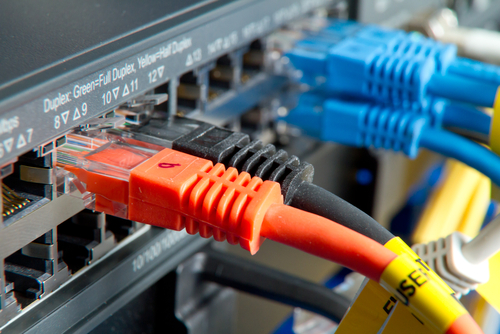DWP IPv4 Addresses Are Not For Sale

The 16.8 million address block is being used and can’t be sold
The Department for Work and Pensions (DWP) has denied rumours that it is sitting on a hoard of 16.8 million unused IPv4Internet addresses, which are becoming increasingly scarce as the world fails to move to the new version of the Internet protocol, IPv6 .
Last week, blogger and programmer John Graham-Cumming discovered the block of addresses which he thought were completely unused. Activist Jo Shields started a petition to urge the government to sell it off. She estimated the market value of the block, known as a /8, to be between $0.5 and $1.5 billion.
According to the Department, most of the addresses are allocated and in use.
Valuable resource
Internet Protocol version 4 (IPv4) uses 32-bit addresses, which limits the address range to 4,294,967,296 instances. On Friday, when Europe’s regional Internet registrar RIPE NCC announced it had opened up its last block of IPv4 addresses, it said future allocations would be strictly limited. IPv4 is to be gradually replaced by the updated version of the protocol – IPv6 – which is unlikely to ever run out.
 The value of IPv4 addresses held by the Department is not precise, but bankrupt network company Nortel sold 0.66 million addresses to Microsoft in March 2011 for £4.7 million ($7 million). At that price, the DWP stash would be worth £100 million, but prices have certainly gone up with the increasing scarcity of IPv4 addresses.
The value of IPv4 addresses held by the Department is not precise, but bankrupt network company Nortel sold 0.66 million addresses to Microsoft in March 2011 for £4.7 million ($7 million). At that price, the DWP stash would be worth £100 million, but prices have certainly gone up with the increasing scarcity of IPv4 addresses.
The block was issued to the DWP a long time ago and was originally intended for “internal use”, which would be “madness” according to Shields, since internal networks do not require a unique set of IP addresses.
As it turns out, a Freedom of Information request by James Marten dating from December 2011 had already investigated whether the addresses were in use, and asked if the department could sell them off.
“The cost and complexity of re-addressing the existing government estate is too high to make this a viable proposition. DWP are aware that the worldwide IPv4 address space is almost exhausted, but knows that in the short to medium term there are mechanisms available to ISPs that will allow continued expansion of the Internet, and believes that in the long term a transition to IPv6 will resolve address exhaustion,” explained a reply from DWP.
“Note that even if DWP were able to release their address space, this would only delay IPv4 address exhaustion by a number of months,” it added.
According to the “Technical Domain Description” documents published by the Cabinet Office and discovered by Computerworld, the block is used by government service providers when they connect to the Public Services Network Virtual Private Network (PSN VPN).
The PSN VPN is not the Internet in a traditional sense, but it still requires IP addresses – it’s not entirely clear why these have to be global Internet addresses. The suggestion that the 51.0.0.0/8 block was “unused” was prompted by the fact that there are no public routes to any part of the block. One of the reasons for this is improved cybersecurity.
The question remains: why did the DWP not use IPv6 for the government network?
Do you know the secrets of Wi-Fi? Take our quiz!